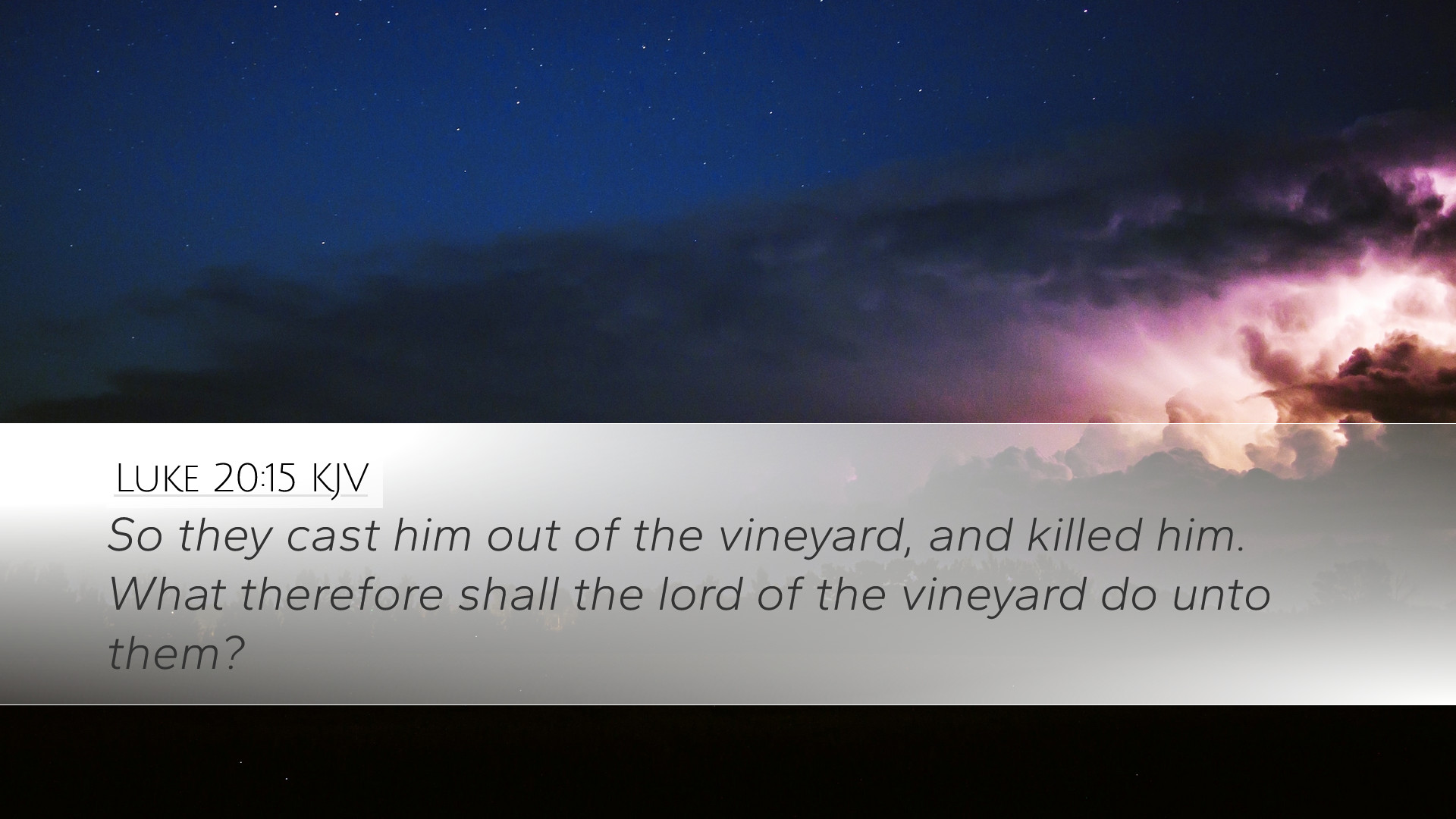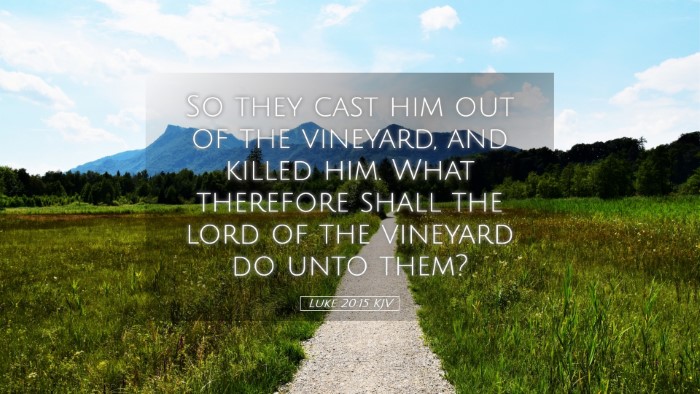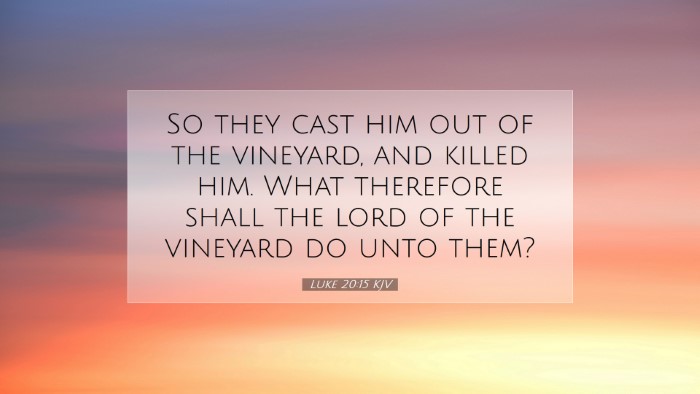Commentary on Luke 20:15
Verse: "So they cast him out of the vineyard, and killed him. What therefore shall the lord of the vineyard do unto them?" (Luke 20:15, KJV)
Introduction
The parable of the wicked husbandmen in Luke 20 serves as a striking allegory regarding the rejection of divine authority, encapsulating the tensions between Jesus and the religious leaders of His time. Through this narrative, Jesus reveals the consequences of unfaithfulness and the eventual triumph of God's justice.
Contextual Background
This parable emerges during a pivotal moment in Jesus' ministry, where He is confronted by the religious elite. Understanding both the social and theological implications of this parable is crucial, as it encapsulates the rejection of Christ and foreshadows the coming judgment against those who oppose God’s messengers.
Commentary Insights
Matthew Henry's Perspective
Matthew Henry notes that this parable signifies God's long-suffering towards Israel, where He sends His prophets and ultimately His Son to gather the fruits of righteousness. The husbandmen represent the Jewish leaders, who have misappropriated their stewardship of the vineyard, symbolizing the nation of Israel. Henry emphasizes the audacity of the husbandmen who not only reject the servants but also slay the heir, illustrating the depth of their rebellion.
Albert Barnes' Analysis
Albert Barnes comments on the implications of the act of casting out and killing the heir. He elucidates that the vineyard represents the kingdom of God, while the servants depict the prophets. Barnes highlights the inevitability of divine justice, suggesting that the coming judgment upon those who reject Christ will be severe. He stresses that the act of killing the heir signifies a radical rejection of not only the Messenger but the very message of salvation offered through Him.
Adam Clarke's Exegesis
Adam Clarke provides a robust historical and theological framework for understanding this verse. He points out that the "vineyard" speaks to the people of Israel, and the killing of the heir manifests the grave consequences of their actions—not only against the Son of God but also against their own spiritual heritage. Clarke argues for the profundity of divine justice, positing that the rejection of Christ leads to their own destruction. He further highlights the necessity of recognizing the authority of the Son and the danger faced by those who stubbornly persist in unbelief.
Theological Implications
This parable serves as a potent reminder of the various responses to God's call. The actions of the husbandmen reflect a broader human tendency to preside over one's own life, dismissing the rightful authority of divine leadership. The theme of rejection, specifically in the context of leadership, resonates deeply with contemporary church dynamics, presenting challenges and warnings for today’s believers.
Practical Applications
- Stewardship: Reflecting on how we manage the gifts, opportunities, and responsibilities granted to us by God.
- Response to Authority: Evaluating our attitudes towards spiritual leadership and God's ordained messengers.
- Faithfulness: Committing to be diligent in our calling, ensuring we do not become like the wicked husbandmen who failed to produce fruit.
- Judgment and Mercy: Understanding God's patience before judgment, and the necessity of repentance and turning toward Him for forgiveness.
Conclusion
In conclusion, Luke 20:15 draws a vivid picture of rebellion against heavenly authority and the dire repercussions of such actions. The insights offered by prominent biblical commentators enrich our understanding of this passage and encourage a posture of humility and obedience. As we reflect on this parable, may we strive to produce the fruits of righteousness and faithfully steward the divine call upon our lives.


